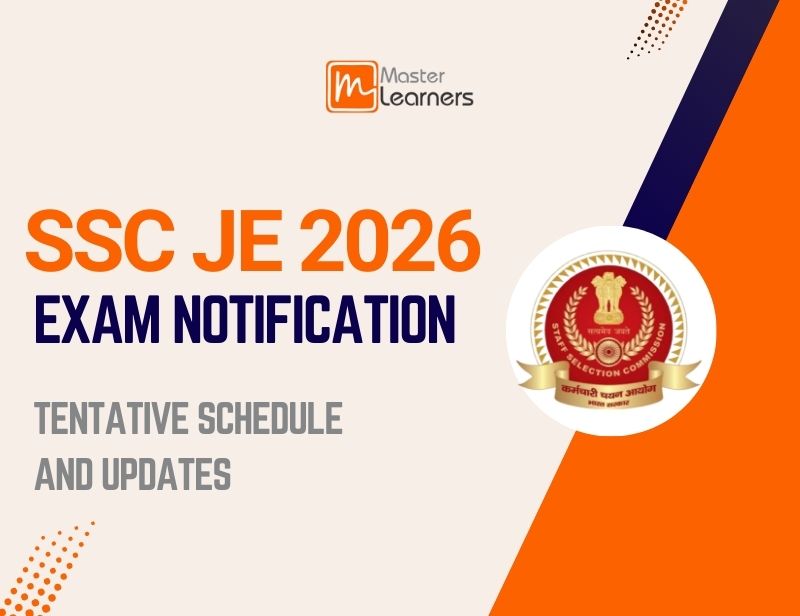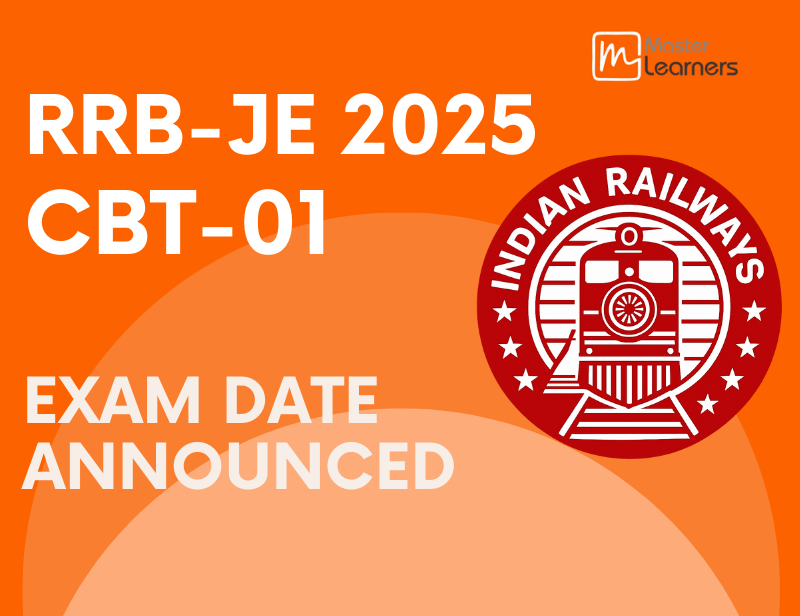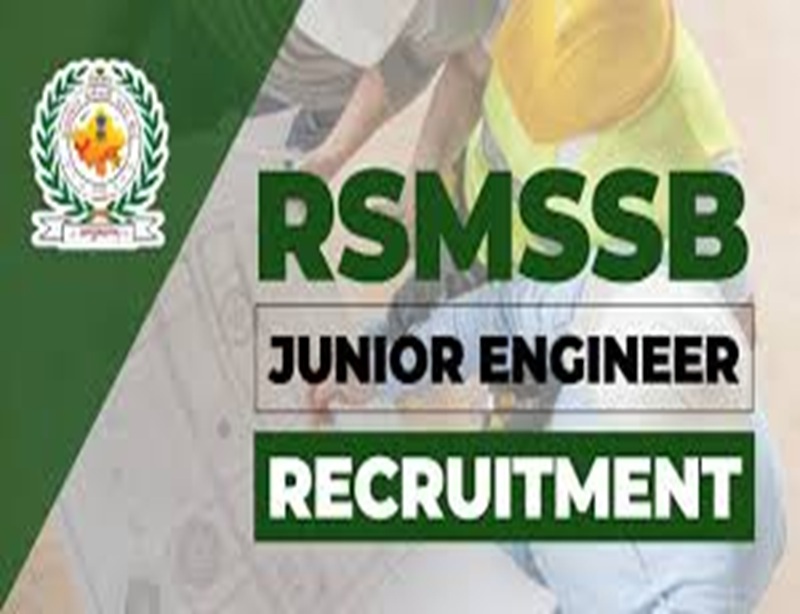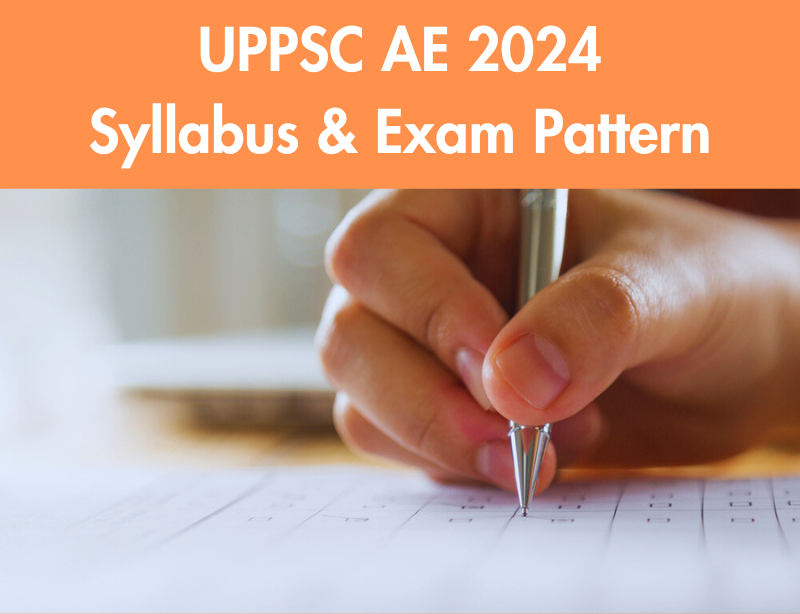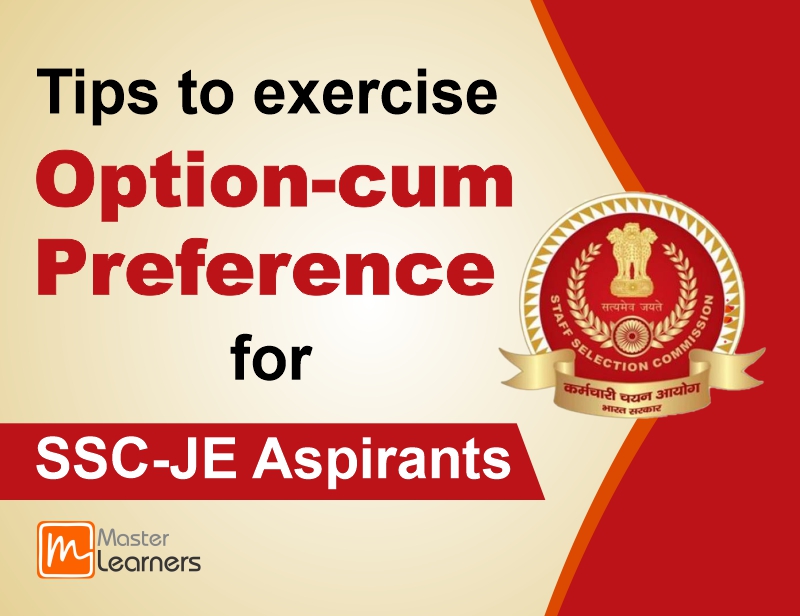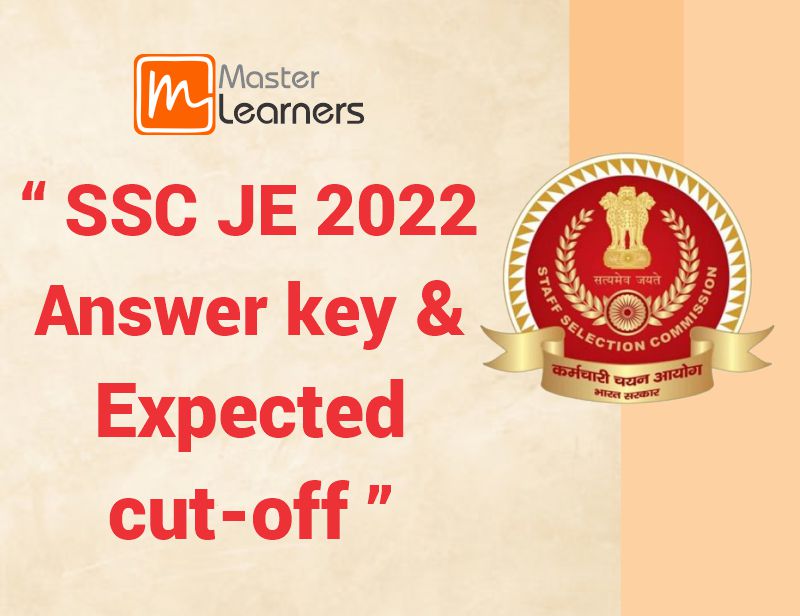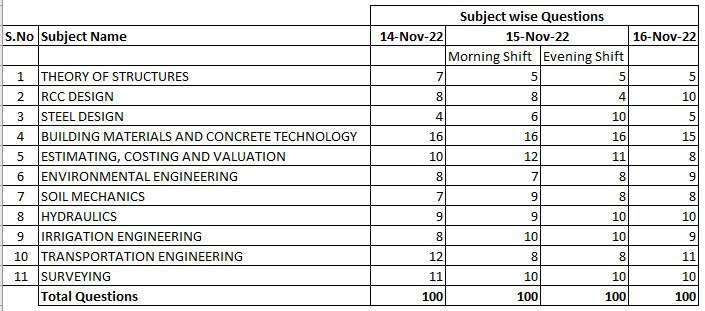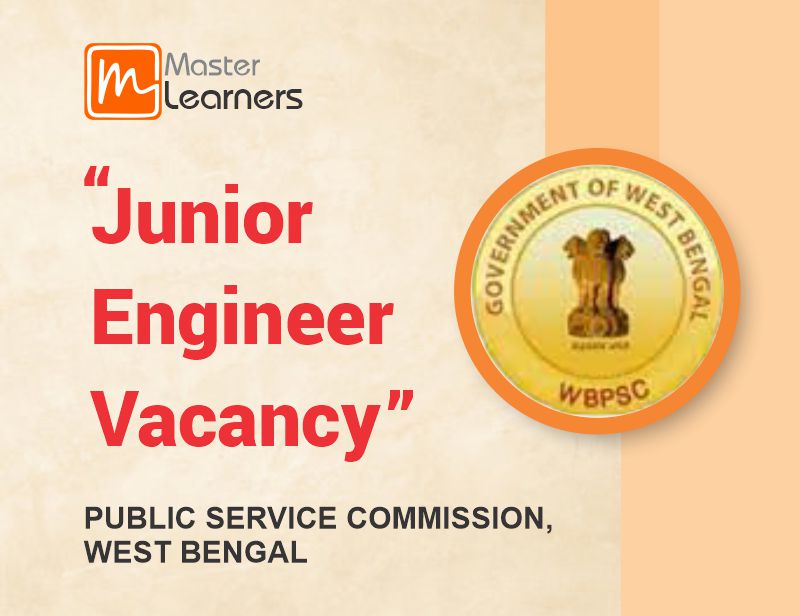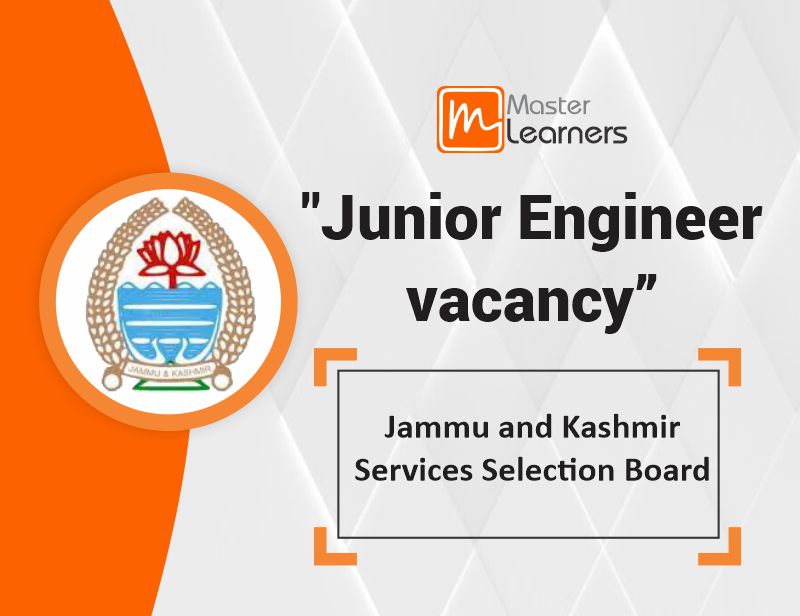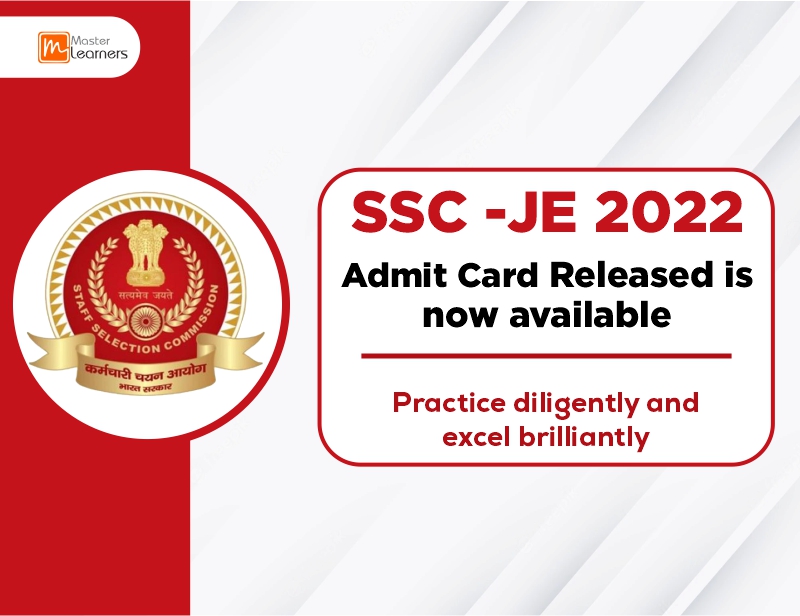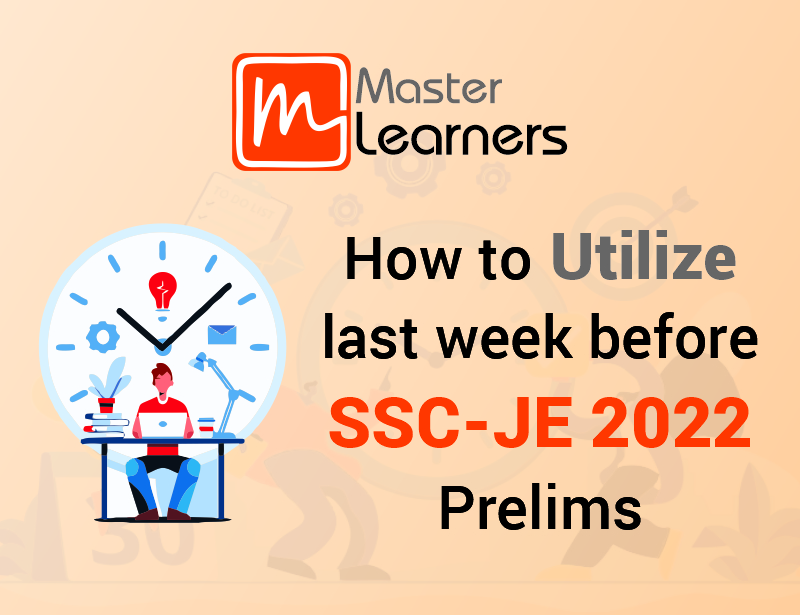SSC JE 2026: Notification, Exam Pattern, Syllabus, Eligibility & Preparation Tips
SSC JE 2026 Exam: Notification Status, Tentative Schedule and Updates
The SSC JE 2026 examination is conducted to select Junior Engineers for Civil, Mechanical, and Electrical disciplines. As per the SSC Exam Calendar 2026, the official notification is likely to be released in March 2026, with the application window expected to remain open until April. The selection process consists of two written papers, and candidates must hold a relevant diploma or degree to be eligible.
SSC JE 2026 is a competitive government exam for candidates with a diploma or degree in Civil, Mechanical, or Electrical engineering. According to the SSC Exam Calendar, the notification is expected in March 2026, followed by the application window from March to April. The SSC JE 2026 exam is tentatively scheduled for May–June 2026. The official notification will provide details on eligibility, vacancies, syllabus, exam pattern, and the selection process, making it essential for aspirants to follow updates regularly and begin preparation early.
Join Master Learners SSC JE Courses
SSC JE 2026 Notification PDF – Expected in March 2026
The SSC JE 2026 Notification PDF is expected to be released online in March 2026 (tentative) on the official Staff Selection Commission website. The notification will provide complete details related to the SSC JE 2026 examination, including important dates, syllabus, exam pattern, vacancy details, and the online application procedure. Candidates are advised to go through the notification carefully to understand the eligibility conditions and other guidelines before submitting the application form. All official updates and instructions related to SSC JE 2026 will be available in the notification once it is released.
SSC JE 2026 Recruitment Overview
SSC JE 2026 is a national-level exam conducted by the Staff Selection Commission to recruit Junior Engineers in Civil, Mechanical, and Electrical disciplines for Central Government departments. The selection process includes two compulsory papers, both of which are considered for final selection.
SSC JE 2026 Exam – Key Highlights
- Exam Name: SSC JE 2026
- Post: Junior Engineer (Civil / Mechanical / Electrical)
- Conducting Body: Staff Selection Commission (SSC)
- Exam Mode: Computer-Based Test (CBT)
- Selection Stages: Paper 1 and Paper 2
- Job Type: Group B (Non-Gazetted) Central Government technical posts
Candidates should keep track of the SSC Exam Calendar 2026 and official SSC updates for the latest information.
SSC JE 2026 Vacancy Overview
The exact number of SSC JE 2026 vacancies will be announced in the official notification. Until then, candidates can refer to the previous year’s vacancy details to get a general idea of the expected intake. While the competition for SSC JE remains high, the number of available posts is usually substantial across engineering disciplines.
SSC JE Vacancy Trends
- SSC JE 2025: Around 1,731 vacancies (after revision)
- Posts were distributed across Civil, Mechanical, Electrical, and related engineering branches in various departments.
- SSC JE 2026: To be announced
- Vacancy figures are expected to follow a similar pattern, with final numbers confirmed only through the official notification.
Candidates are advised to rely on the official SSC notification for accurate vacancy details once released.
SSC JE 2026 Important Dates
Keeping track of SSC JE 2026 important dates helps candidates manage application deadlines, exam preparation, and revision schedules effectively. The Staff Selection Commission will announce the final schedule through the official SSC JE 2026 notification. Until then, aspirants can refer to the tentative timeline based on the SSC Exam Calendar 2026.
SSC JE 2026 Tentative Schedule
- Notification Release: March 2026
- Online Application Window: March to April 2026
- Admit Card (Paper 1): Expected around April 2026
- SSC JE 2026 Paper 1 Exam: May–June 2026
- Paper 1 Result: To be announced
- Paper 2 Exam: Dates to be notified later
Candidates should regularly check official SSC updates, as all dates are subject to change until confirmed in the notification.
SSC JE 2026 Eligibility Criteria
Candidates planning to appear for SSC JE 2026 should review the eligibility conditions carefully before applying. The Staff Selection Commission generally follows similar rules each year for nationality, age limit, and educational qualifications. Applicants must hold a relevant engineering diploma or degree and meet the prescribed age criteria for the specific post.
Key SSC JE 2026 Eligibility Requirements
- Nationality:
Applicants must be Indian citizens or fulfill the nationality conditions specified by the Government of India. - Age Limit:
The upper age limit for most Junior Engineer posts typically ranges between 30 and 32 years, with age relaxations applicable to candidates from reserved categories as per government norms. - Educational Qualification:
Candidates should have a three-year diploma or a B.E./B.Tech degree in Civil, Mechanical, Electrical, or a related engineering discipline, depending on the post.
Candidates are advised to check the post-wise eligibility details mentioned in the official SSC JE 2026 notification before submitting the application form.
How to Apply for SSC JE 2026 Application Form
The SSC JE 2026 application process is expected to be conducted online from March to April 2026 (tentative) through the official SSC website. Candidates must complete the application carefully, as incorrect or incomplete details may lead to rejection. It is recommended to keep all required documents ready before starting the registration process.
Steps:
- Visit the official Staff Selection Commission website.
- Complete the one-time registration using basic personal details, a valid mobile number, and email ID, if not already registered.
- Log in using the registration credentials and access the SSC JE 2026 application form link.
- Enter personal, educational, and contact details as per official documents.
- Upload the required photograph and signature in the prescribed format.
- Pay the SSC JE 2026 application fee through the available online payment modes.
- Submit the form and download a copy of the final application for future reference.
Candidates should ensure that all information provided matches their documents before final submission.
SSC JE 2026 Application Fee
Candidates applying for SSC JE 2026 will be required to pay the application fee through online modes such as debit card, credit card, net banking, or other payment options provided during form submission. The application fee structure generally follows a standard pattern, with concessions available for certain categories as per government norms.
SSC JE 2026 Expected Application Fee Structure
- General / OBC (Male): ₹100
- SC / ST / PwD: Fee exemption or reduced fee, as applicable
- Female Candidates: Usually exempted from payment, subject to official notification
Applicants are advised to verify the exact fee details in the official SSC JE 2026 notification, as the final fee structure may be revised.
Documents Required for SSC JE 2026 Application
Candidates should keep all necessary documents ready before filling out the SSC JE 2026 application form. Details entered in the form and uploaded documents must match the information provided in official certificates to avoid discrepancies at later stages.
Commonly Required Documents
- Recent passport-size photograph and scanned signature in the prescribed format
- Class 10 certificate for date of birth verification
- Diploma or Degree certificates and mark sheets in the relevant engineering discipline
- Category certificate (SC/ST/OBC/EWS), if applicable
- PwD certificate for candidates claiming disability reservation
- Valid photo identity proof such as Aadhaar card, PAN card, Voter ID, or Passport
SSC JE 2026 Selection Process
The SSC JE 2026 selection process will be detailed in the official notification and is expected to follow the standard structure used in previous years. Candidates must clear multiple stages to secure final selection, making it important to understand the exam pattern and syllabus in advance.
Stages of SSC JE 2026 Selection
- Paper 1: Computer-Based Test with objective-type questions
- Paper 2: Second-stage examination conducted in CBT mode for the chosen technical discipline
- Document Verification: Verification of original documents for shortlisted candidates
- Final Merit List: Prepared based on marks obtained in Paper 1 and Paper 2, along with category-wise rules
Candidates are advised to prepare strategically for both papers and keep documents organized for smooth verification.
SSC JE 2026 Exam Pattern
Understanding the SSC JE 2026 exam pattern is essential for effective time management and subject-wise preparation. The examination is conducted in two stages. Paper 1 focuses on objective-type questions, while Paper 2 is technical in nature and carries higher weightage. Candidates should refer to the official notification for the latest marking scheme and exam instructions.
SSC JE 2026 Exam Structure
- Paper 1
- Mode: Computer-Based Test (CBT)
- Subjects: General Intelligence & Reasoning, General Awareness, and Technical (Civil / Mechanical / Electrical)
- Total Marks: 200
- Duration: 2 hours
- Paper 2
- Mode: Computer-Based Test (CBT)
- Subject: Technical discipline chosen by the candidate
- Total Marks: 300
- Duration: 2 hours
Negative marking is applicable for incorrect answers, as per the rules mentioned in the official notification.
SSC JE 2026 Syllabus
The SSC JE 2026 syllabus is based on the official SSC Junior Engineer syllabus and covers both non-technical and technical subjects. The syllabus is designed to assess basic aptitude along with core engineering knowledge.
SSC JE 2026 Syllabus Overview
- General Intelligence & Reasoning:
Topics include verbal and non-verbal reasoning such as analogies, series, coding-decoding, classification, and problem-solving. - General Awareness:
Questions are asked from current affairs and general topics including Indian history, geography, polity, economy, and basic science. - Technical Subjects (Civil / Mechanical / Electrical):
Covers core engineering concepts as per diploma or degree-level standards, detailed in the official SSC JE syllabus PDF.
Candidates are advised to download the latest SSC JE syllabus PDF from the official SSC website and prepare a topic-wise study plan for better coverage.
SSC JE 2026 Result
The SSC JE 2026 result will be published online on the official website of the Staff Selection Commission. Results for each stage of the examination will be released separately in PDF format, listing the roll numbers of qualified candidates along with category-wise cut-off marks.
Initially, the Paper 1 result will be declared, and only candidates who qualify will be eligible to appear for Paper 2. After the completion of Paper 2 and document verification, SSC will release the final result and merit list, which will determine the final selection for Junior Engineer posts.
Candidates are advised to regularly check the official SSC website for result updates and cut-off details.
SSC JE Salary 2026
The SSC JE 2026 salary is governed by Central Government pay rules for Group B (Non-Gazetted) Junior Engineer posts. Selected candidates are usually placed under Pay Level 6 of the 7th Pay Commission, along with applicable allowances.
The in-hand salary includes basic pay along with benefits such as Dearness Allowance (DA), House Rent Allowance (HRA), Travel Allowance (TA), and other admissible allowances based on the posting location. Due to job stability, steady career growth, and government benefits, SSC JE remains a preferred career option for engineering diploma and degree holders.
Preparation Support for SSC JE Aspirants
Master Learners Coaching provides a structured and exam-oriented preparation approach for SSC JE 2026 aspirants. The course is designed to cover the complete syllabus through topic-wise lectures, detailed study material, regular practice questions, and mock tests aligned with the latest exam pattern. Emphasis is placed on strengthening core technical subjects along with systematic revision to help students build accuracy and confidence. With guided preparation and continuous assessment, Master Learners Coaching supports aspirants in improving their performance in SSC JE and other AE/JE engineering examinations.


